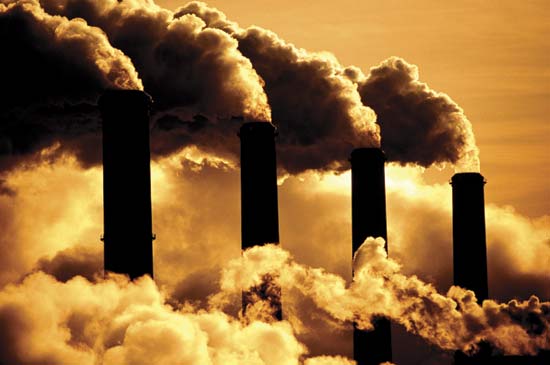Focus Should be on Preparing for Environmental Changes Rather Than Cutting Emissions

(Terence Wright/London Commodity Market/Flickr)
October 3, 2013

When it comes to climate change, I cannot help but feel a certain sense of pessimism. Environmentalist eschatology tells us that climate change will usher in a millenarian age of severe droughts, worsening hurricane and monsoon seasons and Old Testament-style flooding of coastal regions that most of humanity calls home. Then, economics tells us that reducing and capping carbon emissions is going to be expensive, and without compelling incentives, the nearly 200 sovereign states of the Earth are not going to want to bargain. In addition to these depressing positions, a recent meta-study on the matter released by the Intergovernmental Panel on Climate Change (IPCC) on Sept. 27 reveals—or rather re-reveals—what many experts have been saying all along: climate change is happening, and our species is roughly 95-100% responsible for it.
This is hardly new information, although it remains disputed in some circles. Because we have heard this same statement that pins the blame on modern society time and time again, I doubt that yet another international study proclaiming the causes and effects of climate change is going to be very influential.
The IPCC report concludes by saying, “As a result of our past, present and expected future emissions of CO2, we are committed to climate change, and effects will persist for many centuries even if emissions of CO2 stop.” If the difficulty in getting countries to bargain over who needs to reduce emissions wasn’t already high enough, the revelation that stopping emissions won’t even solve the problem will kill it. I think the great question for our generation and those who follow us won’t be why we didn’t stop climate change, but whether or not we were pragmatic enough.
We know that the sea level is going to rise, that ice is going to melt and that many parts of the world are going to need assistance in preparing for and coping with the onset of this new world. We also know that cutting emissions is barely going to mitigate this change, and that the biggest contributors to global climate change are also the biggest impediments to getting anything done. We have a long tradition of shaping our environment, sometimes dramatically, to meet our needs, but the environment is going to be doing the shaping over the next century.
The rising sea level is probably the most frightening prospect we are facing. The Netherlands, famous for its levees, locks and dykes, is almost entirely below sea level, which has been a strategic concern for Dutch governments since well before the industrial era. I think their current methods and innovations are worth studying because in the future it may be necessary for other countries with large coastal ports and cities to adopt such measures. This is precisely where the international community will need to work together, as not all countries are going to be able to afford them. For some nations, this will require monetary aid for building flood-preventative structures; others may need help in resettling dense coastal populations further inland and building the necessary irrigation system.
Another interesting—and possibly positive—consequence of climate change will be the unprecedented thawing of the Arctic. The long-sought Northwest Passage between the Atlantic and Pacific Oceans may become a reality, opening up all kinds of economic opportunities, especially in shipping. A shift in temperature would also open up a great deal of new land in the world’s coldest (and sparsely populated) regions for potential agriculture and settlement, such as Alaska, Canada and Siberia. These two developments would also make northern fossil fuels more accessible, potentially causing some sort of global warming feedback loop.
Whether it’s implementing strategies for disappearing coastal towns or making efficient use of newly thawed lands, I think it is much more practical for us to focus on developing cleaner forms of energy and preparing for the changing environment than beating the dead horse of carbon capping.











